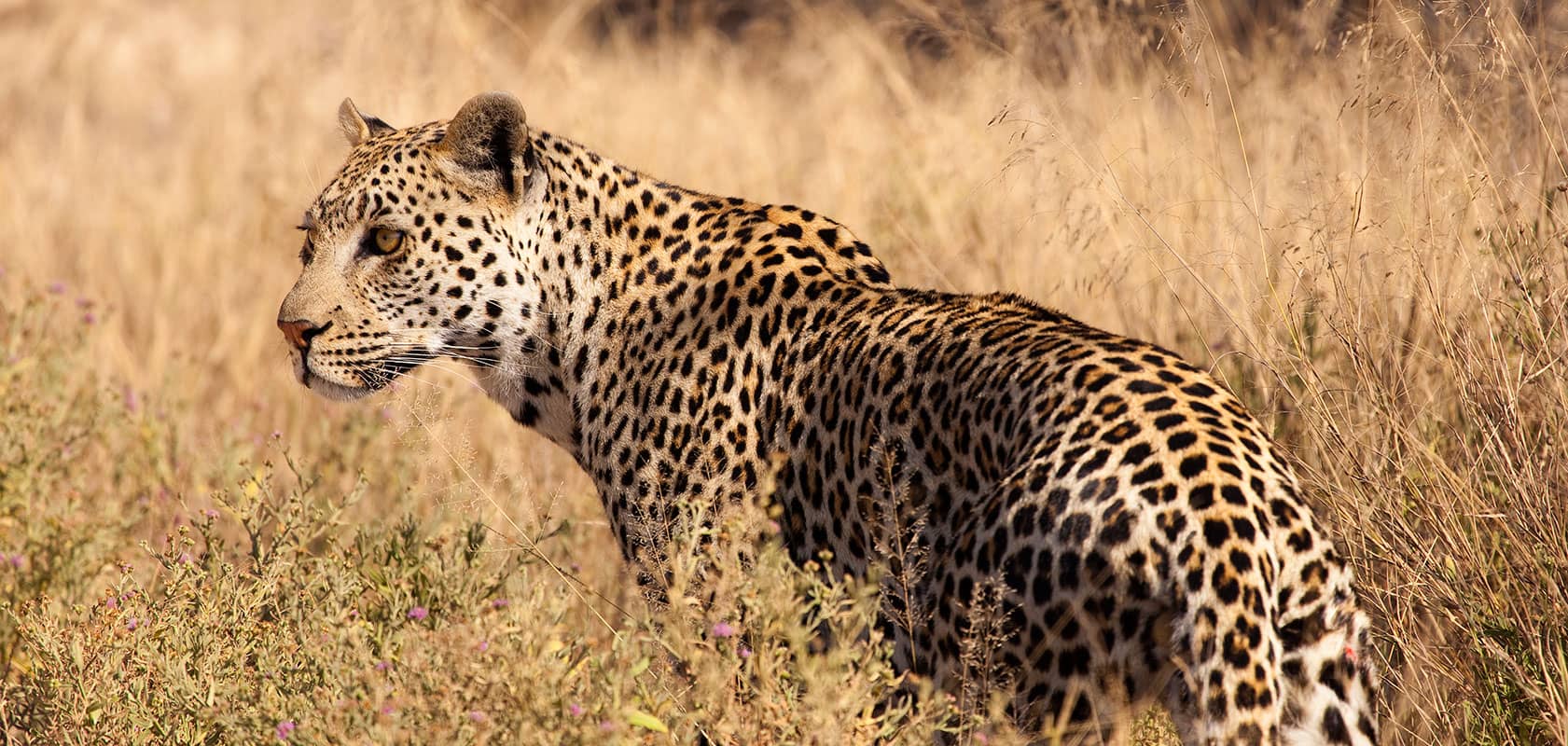
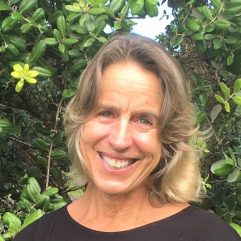
I am a research ecologist with the U.S. Forest Service’s Institute of Pacific Islands Forestry, based in Hilo, Hawai.
I carry out research based on my expertise in plant ecophysiology. Ecophysiology looks at the structure and functions of plants to better understand their tolerance to change and their ability to adapt in new locations or situations.
When people think about Hawai’i, they usually think about lush tropical rainforests. And we definitely have those here, but I do a lot of my research in tropical dry forests, which are some of the rarest, most specialized ecosystems in the world.
Tropical dry forests are facing insurmountable threats from a lot of invasive plants, particularly grasses brought in from various parts of the world. It might sound strange to think of grass as a threat, but here it is. Not only do they crowd out native plants, but these grasses are very flammable, so they’ve now brought wildfire into an ecosystem that wasn’t designed to be burned. With every fire, more native plants are destroyed, and they’re replaced by these fire-adapted intruders.
These research themes represent an articulation of future Institute research and our vision to continue developing next generation understanding of landscape change, testing of conservation based tools, facilitating the production of knowledge to improve the ecological condition of native ecosystems of the Pacific, enhance the sustainability of resource use in our region, and maintain the quality of life for those in our Pacific community. Institute Scientists have identified research themes as representing the frontiers of natural resources science and management in Hawai‘i and the US Affiliated Pacific, but also frontiers in tropical ecology and natural resources science broadly.
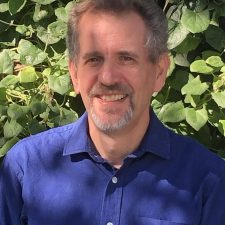
Jim is a Professor of Plant Biology at the University of Illinois, Urbana-Champaign, where he teaches undergraduate and graduate classes in ecology, community ecology, and plant-fungal interactions. He completed his Ph.D. at the University of Cambridge, where he studied forest regeneration on landslides in the Blue Mountains of Jamaica. He then moved to the Smithsonian Tropical Research Institute in Panama, where he spent eight years as a postdoctoral fellow working on the ecology of pioneer tree species on Barro Colorado Island (BCI). Since moving to Illinois in 2000, he has continued to work on plant-fungal and plant-soil associations of tree species at BCI and La Selva, at ForestGeo plots around the world, and at a network of premontane and montane forest plots he has established in western Panama. At Illinois, he has served as a Department Head (2014-2019) and as an Interim Director of the School of Integrative Biology. He is currently Director of the undergraduate Honors Program.
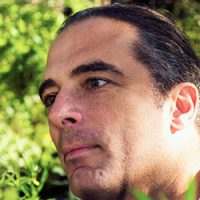
As undergraduate and graduate student I had the first exposure to tropical environments when studying insect biodiversity in Bornean primary and secondary rainforests.
I have co-led an OTS graduate specialty course on “Plant Animal Interactions in the Tropics” at La Selva and have been visiting faculty on OTS graduate courses.
I am a chemical ecologist research focuses on the mechanisms, ecological consequences and the evolution of plant induced responses to herbivore damage. Conceptually, I study plant secondary metabolism as a vehicle of information transfer. Chemical information can mediate complex interactions from the molecular and cell to the whole plant and community level. As a consequence, my research includes studying chemical elicitation of plant responses, plant chemistry-mediated alterations in insect population and community dynamics, plant-plant communication, plant-pollinator interactions and plant defense mechanisms against herbivores. Moreover, we put a particular emphasis on studying the ecological functions and evolution of plant metabolic responses and chemical information transfer in the plants’ native habitats. With more recent projects my group tries to apply some of the chemical ecology principles found in native systems to control insect pests in agricultural systems. My research includes a number of different study systems in New York, Utah, Peru, Costa Rica, Colombia and Kenya.
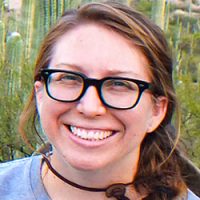
Erin is a tropical ecologist who studies plant-animal interactions and how they scale up to affect forest communities in a changing world. Her research programs in Costa Rica and México examine how terrestrial mammal granivores facilitate (via seed dispersal) or prevent (via seed predation) plant range expansions to outpace upslope ecosystem shifts expected as the climate rapidly warms. In the Madre de Dios region of Perú, she investigates how hunting of terrestrial seed dispersers affects carbon storage in adult trees via disruptions in seed-to-seedling transitions. Erin is especially interested in using field experiments to understand how seed-eating animals interact with seeds and seedlings spanning suites of traits and how flexible ecological interactions affect plant survival and spread in biodiverse ecosystems. She is based at the University of Connecticut (the first OTS Lifetime Member Institution!) where she is an Assistant Research Professor (2016-present) and Vertebrate Collections Manager (2019-present). Erin has over 15 years of experience conducting research, leading field courses, and building conservation capacity in the Neotropics. Her close, sustained connections with numerous tropically-oriented organizations (including OTS, ATBC, Smithsonian), long-term research programs spanning three countries in tropical America, and her passion for mentorship of early career scientists (e.g., coordinating and serving as resource faculty on many OTS fundamentals courses in Costa Rica, founding the ATBC Student and Early Career Scientist Chapter) provide her with the experience she needs to serve as an effective Member Director on the OTS Board of Directors. Erin’s tropical connections, creativity, enthusiasm, and experience within and outside of OTS put her in a unique position to further OTS’ mission as a leader in transformative tropical science research and education.
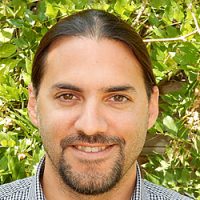
Nathan Muchhala is an Associate Professor of Biology at the University of Missouri – St. Louis (UMSL), where he teaches undergraduate courses in ecology, as well as graduate courses in evolution and systematics. His research centers around the evolution of plant-pollinator interactions, with a particular focus on plants pollinated by bats and hummingbirds, and he has conducted fieldwork in multiple countries in the Neotropics such as Ecuador, Colombia, Costa Rica, and Bolivia. He uses various approaches including molecular phylogenetics, population genetics, and field experiments to explore questions such as how specialization evolves, what the ecological and evolutionary consequences of competition for pollination are, and how pollinators affect plant speciation. He earned his Ph.D. at the University of Miami, during which he spent three years living and working in Ecuador, and then did postdoctoral stints at the University of Toronto and the University of Nebraska – Lincoln. He is currently serving as the Director of Graduate Studies for UMSL’s Biology Department.
Nathan became a huge fan and proponent of OTS ever since he participated in a Tropical Ecology field course in the summer of 2001.
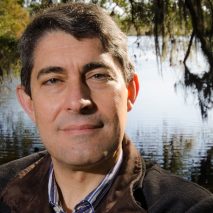
Rafa’s work focuses on integrated environmental systems modelling, including interactions between hydrological, ecological and human components. He maintains a very active international research program in the Americas, Africa, and Europe. In 2010, he started a long-term collaboration with OTS in Palo Verde National Park, Costa Rica where, with NSF funding, his team established a dense monitoring network with 120 sensors (15-minute readings for rain, stream flow, surface and ground water, and soil moisture and salinity), spatially distributed in 12 different stations encompassing the main landscapes within the Park. This large continuous database (2012-2018) combined with remote sensing and prior data at the larger Tempisque-Bebedero basin served to analyze changes and trends in hydrology and vegetation within the Park influenced by upstream land use and climate change. Currently, Dr. Muñoz-Carpena co-leads a transdisciplinary cohort of doctoral students (engineers, biologist, meteorologist, sociologist, lawyers) working as a team on the Tempisque and Palo Verde. In addition to field monitoring efforts, his team develops widely used environmental software for model evaluation and systems and risk analysis. His computer simulation model VFSMOD to study the effect of dense vegetation buffers as a surface runoff pollution control practice is widely used to design vegetative buffers in agricultural and urban settings, and as a component in higher-tier in long-term pesticide environmental assessments as part of the regulatory pesticide registration process in North America and EU. He greatly enjoys training and advising students and has chaired over 25 Ph.D. students and 7 M.Sc. now working in distinguished academic and non-academic institutions around the world.
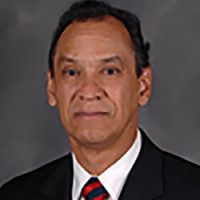
I started my long-term association with OTS in 1981, when I visited La Selva as a student for the first time. I served as Station Manager at La Selva from 1984-1985. The position changed to Assistant Director during my tenure.
As a graduate student, I served as a Teaching Assistant for Tropical Biology: An Ecological Approach in 1986.
As an educator, I have led undergraduate courses from Penn State University, Iowa State University, and Kent State University to La Selva, Las Cruces, and Palo Verde. I have been a visiting faculty member on graduate courses.
The goal of my work is to study genetic variation in natural populations of plants and animals using molecular markers. I am interested in understanding how ecological factors, such the reproductive biology, and human disturbances, affect the distribution of genetic variation. This information is useful for establishing conservation strategies for these populations.
My work in tropical dry forests focuses on the impact of synchronization of flowering phenology on pollination, fruit set, and gene movement among closely related tropical dry forest trees. It is my interest to study the variation in the floral display at three levels. First, I make comparisons between species that differ in the duration and synchronization of their flowering season. Second, I examine the variation within species during the reproductive season, as the density of flowering individuals changes. Third, I study the consequences of flowering out of synchrony. Pollination, fruit set, and gene movement depending on the responses of pollinators to the differences in floral displays.
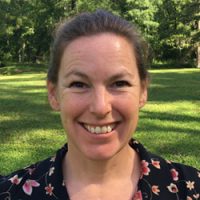
Chelsea is the Chair of the Department of Biology and Environmental Science where she has been faculty since 2005. Her research focuses on latitudinal gradients in immunology and stress physiology in anurans, primarily focusing on changes in the environment affect these physiological processes. As faculty, her primary focus involves teaching and learning how to engage today’s science students in novel ways.
Her relationship with OTS began when she helped a fellow graduate student with his field season at La Selva looking at vertical habitat use of anurans. She then returned to start a project of her own the next year, Latitudinal Gradients in Stress Physiology, a Physiological Explanation of the Jimmy Buffet Effect. As new faculty she was the first in her college to bring students to La Selva and negotiated Auburn’s life time membership not long after. Currently, she works to increase underrepresented students in study abroad and STEM programs.
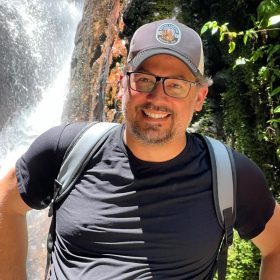
Michael Wasserman is Associate Professor of Anthropology and Human Biology, P.I. of the Primate Environmental Endocrinology Lab (PEEL), and Director of Undergraduate Studies for the Animal Behavior Program at Indiana University Bloomington. From 2013-16, he was Assistant Professor of Environmental Science and Policy at St. Edward’s University. Prior to that, he was a Tomlinson Postdoctoral Research Fellow in the Department of Anthropology at McGill University. He received his Ph.D. in 2011 from the Department of Environmental Science, Policy, and Management at the University of California, Berkeley. His undergraduate degrees are in Anthropology (B.A.) and Zoology (B.S.) from the University of Florida. Michael’s research interests include primate ecology and evolution, environmental endocrinology, nutritional anthropology, and conservation and sustainability. He is currently examining ecological and evolutionary relationships between wild primates and exogenous chemicals that interact with the endocrine system, including naturally occurring phytosteroids and anthropogenic pesticides. Most of his research takes place in Kibale National Park, Uganda, and La Selva Research Station, Costa Rica. He has run a National Science Foundation International Research Experience for Students program with Peter Beck since 2016 focused on the effects of environmental policies, conservation incentives, and land use patterns on primates across Costa Rica, including La Selva and Las Cruces. Details of this research can be found at http://www.mdwasserman.com.

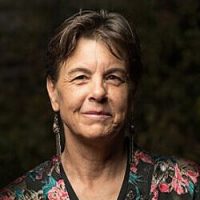
I am thrilled to have this opportunity to serve the Organization for Tropical Studies (OTS) as the interim CEO. I have been involved with OTS for over 30 years:
As a graduate student, I had the opportunity to take our flagship course: Tropical Biology: An Ecological Approach in 1979. For my Ph.D. research, I studied plant-insect interactions at La Selva, with fellowship support from the Noyes Foundation.
As an educator, I have led graduate courses, been a visiting faculty member on OTS undergraduate and graduate courses, and led Occidental students to study tropical biology at OTS field stations.
As a scientist, I work at La Selva on several projects, including a collaboration with colleagues from Occidental and Universidad Nacional in Costa Rica. We are studying how the growth and survival of one of the most common trees in this forest is affected by rainfall, feeding by insects, and symbiotic bacteria.
As the OTS community considers how the organization will grow and thrive into its next half-century, we must preserve the resources at the core of our organization: our research stations, our world-class educational programs, and the people that are committed to them. I am ready to contribute to the creative thinking, hard work, and dedication needed to help OTS evolve and deepen its commitment to enhancing education about, and research in, the tropical world.
For more information about the future of OTS and how you can help, please contact me at elizabeth.braker@tropicalstudies.org or contact Jim Boyle, Vice President Philanthropy at james.boyle@tropicalstudies.org or at 360.920.6302. Thank you!
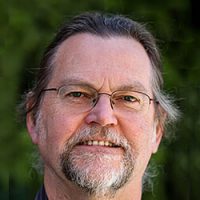
I work in a field called biodiversity informatics on such topics as using natural language processing to extract plant features form text, electronic keys, mining of museum specimen metadata and use of genomics and environment to predict phenotypic expression.
I also work on scientific data policy sometimes with OTS. My current research includes use of machine learning to predict phenotype from genetics and environmental variables. https://genophenoenvo.github.io/. I was a professor for 10 years at the University of Illinois. I then served two years as a program director in the NSF Division of Biological Infrastructure, and I arrived at the University of Arizona 10 years ago and was the founding director of the School of Information. I served on the OTS Informatics committee for 8 years. He served on the Board of Trustees for the JRS Biodiversity Foundation for seven years as a chair of the grants committee, vice president and president. JRS has an activist board that fosters research and infrastructure for the dissemination of biodiversity information particularly in Africa.
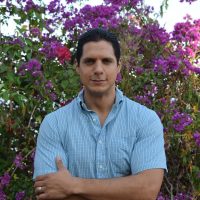
Javier Mateo-Vega holds a joint appointment as Global Director of Partnerships & Communications at the Alliance of Bioversity International and the International Center for Tropical Agriculture (CIAT), and Senior Director of Partnerships at CGIAR. In these capacities, he leads globally distributed teams of experts on resource mobilization, communications, partnerships, capacity development, and external engagement for research-for-development.
Prior, Javier served as Director of the Environmental Leadership & Training Initiative (ELTI) of the Yale School of Environment, holding a joint appointment at the Smithsonian Tropical Research Institute (STRI; Panama). He also held positions at The Nature Conservancy and at OTS (1999-2003), where he served as Coordinator of the Environmental Science and Policy Program, both in Costa Rica.
Javier received his Ph.D. (Biology) from McGill University. His research focused on understanding how indigenous peoples can participate fully and effectively at the local level in policy processes of global concern, such as Reducing Emissions from Deforestation and Forest Degradation (REDD+) and devolved forest management, which aim to arrest forest loss and contribute to international climate and biodiversity targets. He worked primarily in eastern Panama, including the Bayano region and Darien Gap, areas known for their magnificent forests and rich cultural diversity. He remains engaged in ongoing research in the region as part of the Scientific Committee of the Bacuru Droa Initiative (Old-Growth Forest in Emberá language) at STRI and McGill University. Javier has 25 years of experience providing technical and managerial leadership in natural resource management, biodiversity conservation, sustainable agriculture, capacity development, and ecological research in developing countries. He is also member of the Board of Directors of the Emerging Wildlife Conservation Leaders Program.
A native of Costa Rica, Javier has lived in 11 countries in the Americas, Asia, and Europe and is an avid surfer, runner, and art collector.
Javier served as Coordinator of the Environmental Science and Policy (ESP) Program from 1999-2003, and he most recently advised on the content of new ESP Decision Maker courses). In addition, he has given lectures on OTS courses over the years and has supported fundraising opportunities/strategies.
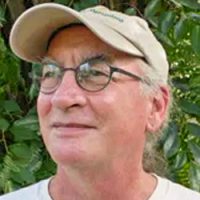
My association with the Organization for Tropical Studies began over a decade ago when I was asked to serve as the Howard University representative. It has continued since then, and I consider it to be a great honor to be asked to serve on the OTS Board of Directors.
Unlike many others on the Board, I did not take an OTS course during my undergraduate and graduate years, although I have conducted REU mentor workshops at La Selva and Las Cruces. My research career has involved fieldwork at research stations in the deserts and tropics. For over four decades, I’ve conducted behavioral and ecological studies of lizards at the Southwestern Research Station of the American Museum of Natural History. In addition, I’ve worked on the behavior of mantis shrimp at the Smithsonian Tropical Research Institution in Panama and, more recently, on the population demographics of sloths in an urban setting in Paramaribo, Suriname.
Much of my 40+ years of classroom teaching included courses in ecology, animal behavior, and science & public policy, an interdisciplinary course; but I additionally taught field courses in Arizona, New Mexico, Bolivia, Panama, Peru, and Suriname. Because of my position at Howard University, an HBCU (Historically Black College and University), I was and remain involved in efforts to increase minority representation in the environmental fields—serving on NSF’s Committee on Equal Opportunities in Science and Engineering and chair of ESA’s Environmental Justice Section. I’ve also served on ESA’s Committee on Diversity and Education and chaired ESA’s 4DEE (Four-Dimensional Ecology Education) Subcommittee that developed and is now implementing this ESA-endorsed curricular framework. While I retired from my teaching position in 2021, I remain actively engaged in education and research.

Dr. Poston is currently a professor in the Environmental Analysis program at Pitzer College and previously served as Dean of the Faculty/Vice President for Academic Affairs from 2012-15. In addition, she served as the Division Director for the Division of Biological Infrastructure in the Biological Sciences Directorate (2016-19) and as Division Director in the Human Resource Division in the Education and Human Resources Directorate (2011-12) at the National Science Foundation. From 2005-2011, she also served as Dean of Faculty and Professor of Biology at Skidmore College. She is a plant systematist whose research has focused on the phylogenetics of Loasaceae. Throughout her career, she has worked to support efforts to broaden the participation of underrepresented students and faculty in science, technology, engineering and mathematics (STEM) disciplines, and sought to enhance the capacity and infrastructure of STEM facilities. She spent over twenty years as a professor in the Department of Biology/Botany at Howard, where she focused on undergraduate education, served as curator of the university herbarium, and worked on the development of an environmental science program. Dr. Poston previously served as a program director and deputy division director in the Biological Sciences Directorate at the National Science Foundation (NSF) where she was responsible for programs to enhance infrastructure for biological research collections, research instrumentation, and field station facilities. She has served as the Chair of the congressionally mandated Committee on Equal Opportunities in Science and Engineering and the NSF Advisory Committee for the Biological Sciences Directorate. She has also served as a member of the Advisory Committee for Project Kaleidoscope, and as a member of the National Academy of Sciences, National Research Council Board of Life Sciences. She is a Fellow by the American Association for the Advancement of Science, and is currently a member of the Board of Directors of the American Institute of Biological Sciences.
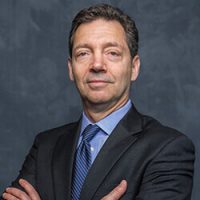
Professor John Tobin-de la Puente is a professor of practice at the Charles H. Dyson School of Applied Economics and Management. He is an environmental biologist and attorney by training. He has over two decades of private sector experience, having practiced corporate law and worked in the international finance industry for most of his career. His recent work focuses on corporate sustainability, including the management of environmental, social, and reputational risks; stakeholder engagement and communications; business ethics; sustainability strategy; and, development of financial products and services that aim to address broad societal challenges. In addition, he has substantial leadership and governance experience in not-for-profit entities at the board level, particularly in the areas of environment, science, and education.
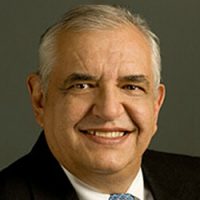
Alvaro Umaña Quesada, Ph.D., is Senior Research Fellow at the Tropical Agronomic Center for Research and Higher Education (CATIE) in Turrialba, Costa Rica, and he is recognized as a leader in policy formulation and in environmental economics.
Umaña was Costa Rica’s first Minister of Energy and Environment, under Arias’ first administration, from 1986 to 1990. In this role, he expanded and regionalized the system of protected areas, created new financial mechanisms, developed a unique system of incentives known today as “payment for ecosystem services,” and promoted the creation of the National Biodiversity Institute. He also designed and developed a master’s program in Sustainable Development and led it for a decade at INCAE, Central America’s School of Business and Management. In ten years, over 120 students from 20 countries have graduated and the program continues to thrive.
Umaña is the author of numerous publications and books, including: The World Bank Inspection Panel: The First Four Years and Financing for Sustainable Development and Point West: The Political History of the Guanacaste National Park Project. International awards that he has received include the President’s Public Service Award from the Nature Conservancy in 1988, a Special Achievement Award from the National Wildlife Federation in 1989, and an honorary doctorate in Law from Williams College for his work on payment for ecosystem services.
Umaña has been a board member of the United Nations Educational, Scientific, and Cultural Organzation (UNESCO), the Rockefeller Foundation, the World Resources Institute, and the Stockholm Environment Institute. He also has been a member of the Goldman Environmental.